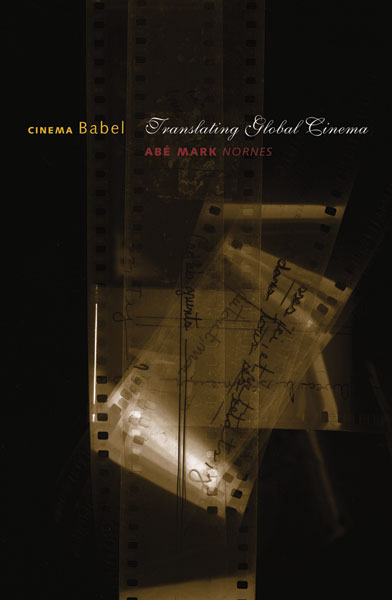In graduate school, immersed in the wonders of films from the world over, I suddenly came to a troubling realization:
the original foreign film—its sights and sounds—is available to all, but the viewer is utterly dependent on a translator and an untold number of technicians who produce the graphic text or disconnected speech through which we must approach the foreign film. A bad translation can ruin a film’s beauty, muddy its plot, and turn any joke sour.
In this wide-ranging work, I examine the relationships between moving-image media and translation and contend that film was a globalized medium from its beginning and that its transnational traffic has been greatly influenced by interpreters. I discuss the translation of film theory, interpretation at festivals and for co-productions, silent era translation practices, “talkies,” subtitling, and dubbing.
Drawing on my own experiences subtitling Japanese films, I think through the ways misprision of theory translations produced stylistic change, how silent era lecturers contributed to the construction of national cinemas, how subtitlers can learn from anime fans, and how ultimately interpreters can be, in his terms, “traders or traitors.”
Cinema Babel: Translating Global Cinema(Minneapolis: University of Minnesota Press, 2007).
Cover

Praise for Cinema Babel
Eric Cazdyn
Cinema Babel is a remarkable book, providing a solid and essential history of translation in cinema, as well as an indispensable model for a new kind of global film studies.
Donald Richie
Cinema Babel deserves to be read for its masterful overview and unbuttoned polemic.
Mark Cousins
As a translator and polyglot, Nornes is well placed to write Cinema Babel, a book about translation, film-theory writing, dubbing, and subtitling. Once again his subject glitters and twists on the page like a shoal of fish. Nornes is such a good writer and thinker that his book is as playful as the subbing and dubbing he envisages.

